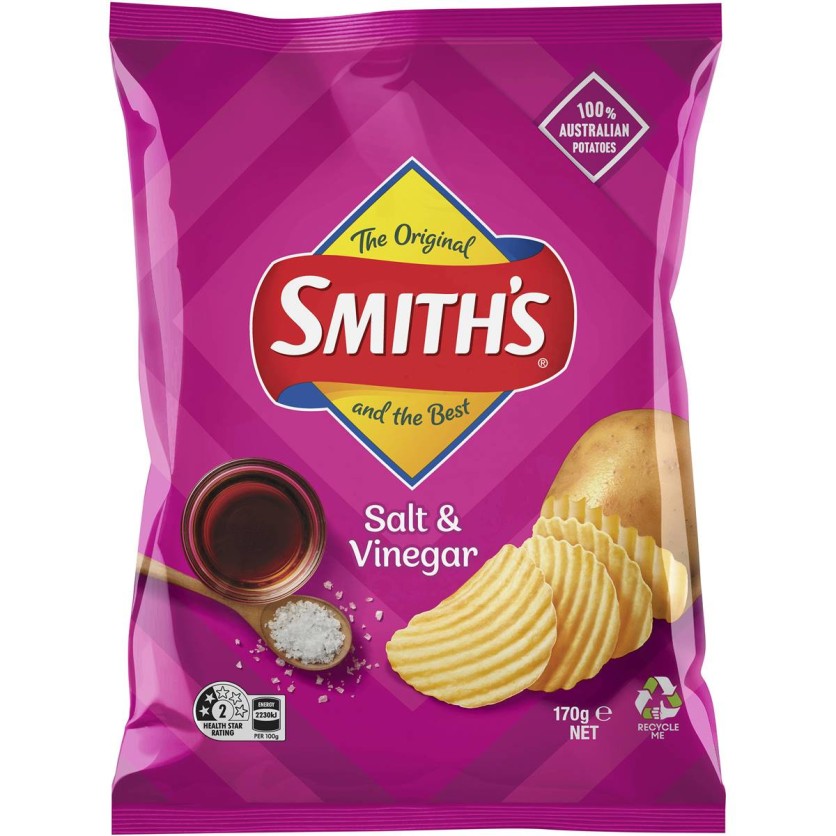In NSW and Queensland, a flavor of a well-known brand of chips is being recalled due to concerns that they may contain plastic fragments, as reported first by 9News.
People who have Smiths Crinkle Cut Salt & Vinegar Chips marked with the Best Before date "15 Jan 23" should not consume the food, according to a notification released by Food Standards Australian New Zealand.
The recall said that the 45g, 90g, and 170g bags of chips might contain plastic bits that could harm consumers if they eat them.
Particularly, the recall notice warned that food products containing plastic particles may "cause injury if swallowed."
These chips are strongly advised not to be consumed, and if you own any of these products, Food Standards recommends that you get in touch with The Smith's Snackfood Company to arrange a refund.

Read also: 'Microplastics in Meat': Lab Test Shows Microplastic Contamination in Pork, Beef, Milk, and Feed
Why Is Plastic Contamination in Food Harmful?
The majority of plastic manufactured worldwide is utilized in food and beverage packaging. But as it is used, plastic deteriorates and fractures into tiny pieces known as microplastics.
According to studies reported by Harvard, some chemicals in plastics can leak out and end up in our food and beverages. Some of these substances have been connected to health issues like obesity, metabolic diseases, and decreased fertility.
When plastic is exposed to heat, this leaching can happen more quickly and to a greater extent. This indicates that by merely microwaving your leftovers in a plastic container, you could be ingesting an even larger quantity of potentially dangerous chemicals, as per Harvard's report.
MedicalNewsToday further explains that plastic can shatter into smaller pieces known when exposed to certain environmental factors, like heat, and these particles can enter our food.
Common plastic food packaging that contains microplastics includes containers, food cans, storage wraps, single-use water bottles, and many more.
Several factors, including heating food impact the amount of microplastics and their hazardous compounds that migrate into food while it is in plastic packaging, prolonged storage, and the kind of plastic packaging that is employed.
Here are the three negative health effects of consuming microplastics in food:
1. Disrupts Hormones
MedicalNewsToday reports that such contamination could disrupt hormones, and at least 15 of the chemicals used by manufacturers to create plastic packaging are deemed to be endocrine disruptors by scientists.
Endocrine disruptors mimic and interfere with several hormones in the body, including estrogen, testosterone, and insulin, and have structural similarities to those hormones. This causes negative health effects and raises a person's chance of developing chronic diseases.
2. Boosts the Risk of Chronic Diseases
Research shows that chronic exposure to endocrine-disrupting microplastics raises the risk of type 2 diabetes and heart disease.
According to experts, increased blood levels of BPs, phthalates, and dioxins are associated with pre-disease inflammation, impaired fasting glucose, insulin resistance, and obesity, which significantly raises the risk of type 2 diabetes.
3. Compromises Immune System
A 2020 review discovered that poor gut health and, consequently, decreased immunity are caused by the increased inflammation brought on by exposure to microplastics.
Since 70-80% of the body's immune cells reside in the gut, the gut plays a significant role in immunity. This implies that any issue affecting gut health also affects immunological health, according to MedicalNewsToday.
Related Article : Researchers Discover Microplastic Trapped in Human Organs: Liver, Lungs, and Spleen
This article is owned by Tech Times
Written by Joaquin Victor Tacla
ⓒ 2026 TECHTIMES.com All rights reserved. Do not reproduce without permission.




